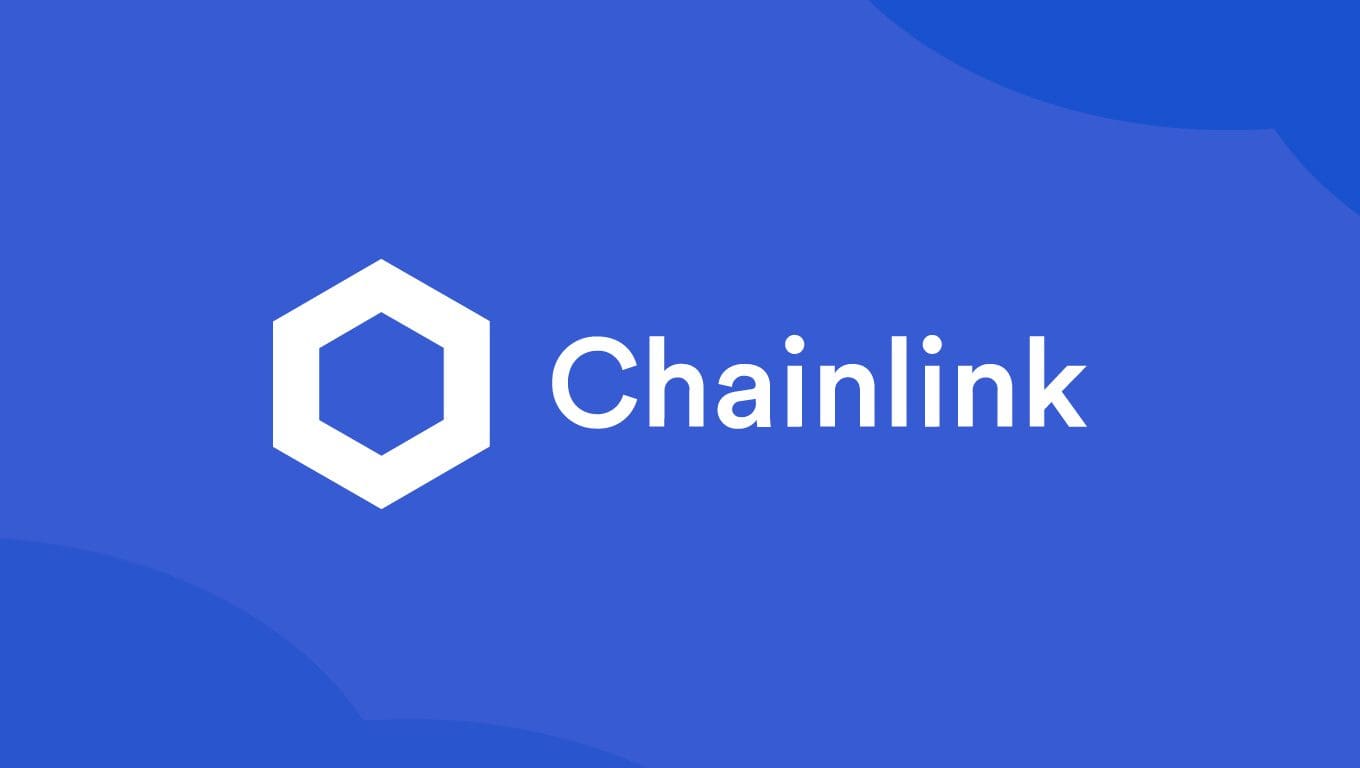Chainlink (LINK): The Decentralized Oracle Network

- What is Chainlink and how does it work?
- The importance of decentralized oracles in the blockchain ecosystem
- How Chainlink ensures data accuracy and reliability
- The role of LINK tokens in the Chainlink network
- Use cases of Chainlink in various industries
- Challenges and future prospects of the Chainlink project
What is Chainlink and how does it work?
Chainlink is a decentralized oracle network that aims to connect smart contracts with real-world data. This allows smart contracts to interact with external data sources, APIs, and payment systems in a secure and reliable manner. The network is powered by the LINK token, which is used to pay node operators for retrieving data and executing smart contracts.
Chainlink works by using a network of nodes to retrieve data from off-chain sources and deliver it to smart contracts on the blockchain. When a smart contract requires external data, it sends out a request to the Chainlink network. Node operators then compete to fulfill the request by providing the requested data. Once the data is retrieved, it is verified by multiple nodes to ensure its accuracy before being delivered to the smart contract.
One of the key features of Chainlink is its ability to provide tamper-proof data to smart contracts. By using multiple nodes to retrieve and verify data, Chainlink ensures that the data is accurate and reliable. This helps to prevent manipulation or fraud in smart contract transactions.
Overall, Chainlink plays a crucial role in bridging the gap between blockchain technology and the real world. By providing a secure and reliable way for smart contracts to access external data, Chainlink is helping to unlock the full potential of decentralized applications and smart contracts.
The importance of decentralized oracles in the blockchain ecosystem
Decentralized oracles play a crucial role in the blockchain ecosystem by providing external data to smart contracts. This data is essential for smart contracts to execute properly and interact with the real world. Without decentralized oracles, smart contracts would be limited to only processing data on the blockchain, severely restricting their functionality.
Chainlink (LINK) is a decentralized oracle network that aims to solve the problem of obtaining reliable and accurate data for smart contracts. By connecting smart contracts with real-world data sources, Chainlink enables smart contracts to make decisions based on real-time information, opening up a world of possibilities for decentralized applications.
One of the key advantages of decentralized oracles like Chainlink is their ability to provide tamper-proof data to smart contracts. By using a network of nodes to fetch and verify data from multiple sources, decentralized oracles ensure that the data fed to smart contracts is accurate and trustworthy. This helps to prevent manipulation or fraud, making smart contracts more secure and reliable.
Furthermore, decentralized oracles help to maintain the decentralized nature of blockchain networks. By relying on a network of independent nodes to fetch and verify data, decentralized oracles eliminate the need for a single point of failure. This decentralization ensures that no single entity has control over the data fed to smart contracts, enhancing the security and reliability of the entire ecosystem.
How Chainlink ensures data accuracy and reliability
Chainlink ensures the accuracy and reliability of data through a decentralized network of oracles. Oracles are trusted sources that provide external data to smart contracts on the blockchain. By using multiple oracles to retrieve and verify data, Chainlink minimizes the risk of inaccuracies or manipulation.
One way Chainlink maintains data accuracy is through the use of reputation scores for oracles. These scores are based on the historical performance of each oracle, including factors such as the timeliness and correctness of data provided. Oracles with higher reputation scores are given more weight in the data aggregation process, increasing the overall reliability of the information.
Additionally, Chainlink employs a process called aggregation to ensure the accuracy of data. This involves collecting data from multiple oracles, verifying its consistency, and calculating a final result based on the aggregated information. By cross-referencing data from different oracles, Chainlink can detect and correct any discrepancies, further enhancing the reliability of the data.
The role of LINK tokens in the Chainlink network
The **LINK** token plays a crucial role within the **Chainlink** network, serving as the primary method of payment for services rendered. **LINK** tokens are used to compensate node operators for retrieving data from off-chain sources and delivering it on-chain to smart contracts. This process, known as **oracle** services, is essential for enabling smart contracts to interact with real-world data in a secure and decentralized manner.
In addition to being used as a form of payment, **LINK** tokens also serve as a means of incentivizing node operators to provide accurate and timely data. By requiring node operators to stake **LINK** tokens as collateral, the **Chainlink** network ensures that they have a vested interest in delivering reliable information. If a node operator provides inaccurate data, they risk losing their staked **LINK** tokens, thereby incentivizing them to act honestly.
Furthermore, **LINK** tokens are used to govern the **Chainlink** network through a decentralized governance model. **LINK** token holders have the ability to participate in key decision-making processes, such as proposing and voting on network upgrades. This democratic approach to governance helps ensure that the **Chainlink** network remains secure, reliable, and responsive to the needs of its users.
Overall, **LINK** tokens are an integral part of the **Chainlink** ecosystem, facilitating the seamless operation of **oracle** services and enabling the network to function effectively. As the demand for decentralized **oracle** solutions continues to grow, **LINK** tokens are likely to play an increasingly important role in supporting the expansion and development of the **Chainlink** network.
Use cases of Chainlink in various industries
Chainlink has a wide range of use cases across various industries, making it a versatile decentralized oracle network. Some of the key industries where Chainlink is being utilized include:
- Finance: Chainlink is revolutionizing the finance industry by providing secure and reliable data feeds for smart contracts. This ensures that financial transactions are executed accurately and transparently.
- Supply Chain Management: Chainlink’s decentralized oracle network is being used to track and verify goods as they move through the supply chain. This helps in ensuring the authenticity and quality of products.
- Insurance: In the insurance sector, Chainlink is used to automate the process of verifying claims and triggering payouts based on predefined conditions. This increases efficiency and reduces the risk of fraud.
- Healthcare: Chainlink is playing a crucial role in the healthcare industry by securely connecting smart contracts with external data sources. This enables the automation of processes such as patient record management and medical research.
- Gaming: Chainlink is being integrated into gaming platforms to provide real-time data feeds for in-game events and outcomes. This enhances the gaming experience and ensures fair play.
Overall, Chainlink’s decentralized oracle network is proving to be a game-changer in various industries by providing a reliable and secure way to connect smart contracts with real-world data. As the adoption of blockchain technology continues to grow, the demand for decentralized oracle networks like Chainlink is expected to increase significantly.
Challenges and future prospects of the Chainlink project
The **Challenges** and **future prospects** of the Chainlink project are crucial aspects to consider when evaluating its potential impact on the **decentralized** finance (**DeFi**) ecosystem. One of the main challenges facing Chainlink is the **competition** from other **oracle** solutions in the market. As the demand for reliable **data** feeds continues to grow, **competing** projects are emerging, posing a threat to Chainlink’s **dominance** in the space.
Another challenge for Chainlink is **scalability**. As the **network** expands and **more** **smart** contracts rely on its **services**, ensuring **fast** and **efficient** **data** **delivery** becomes increasingly **important**. Chainlink’s **ability** to **scale** **effectively** will **determine** its **long-term** **viability** in the **DeFi** **landscape**.
Despite these challenges, the future prospects of the Chainlink project remain **promising**. The **team** behind Chainlink continues to **innovate** and **improve** the **network**, **enhancing** its **capabilities** and **expanding** its **reach**. With **partnerships** with **major** **players** in the **blockchain** **industry** and **beyond**, Chainlink is **well** **positioned** to **capitalize** on the **growing** **demand** for **reliable** **oracle** solutions.
In conclusion, while Chainlink faces **significant** challenges in the **competitive** **DeFi** **market**, its **commitment** to **innovation** and **partnerships** **bode** well for its **future** **success**. By **addressing** **scalability** **issues** and **continuing** to **expand** its **network**, Chainlink has the **potential** to **solidify** its **position** as a **key** **player** in the **decentralized** **oracle** space.



